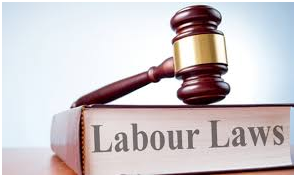Important Things to Know About the Labour Law
It is great to have a job and earn your own money. However, it is also vital to know the following so you would be able to fight for your rights when you work for a certain company.

Employment Status
A company has to be specific with the status and job description of their workers in order for them to know their responsibilities, rights and also their employer's responsibilities to them. There are five main types of it: worker, employee, self-employed and contractor, director, and office holder. Each type would have different contracts and some may not need to have a written agreement. The rights of each employment usually differ on the pay, tax obligations, health and safety, and working hours among others.
Minimum Wage and Living Wage
The hourly rate in the UK mainly depends on the age. Labourers who are below the age of 18 generally get the lowest minimum wage of a little more than four pounds an hour. When a person reaches 25, that person would be getting the National living wage. In addition, an apprentice aging between 16 and 18 or those who are only on their first year regardless of their age would be earning £3.50.
Working Time
Excluding the army and emergency services, all the other kinds of workers have the same rights when it comes to the regulations on the working time. An employee is entitled not to work for more than 48 hours in a week, at least eleven hours of rest before the next working day, 24 hours of no-work per week, appropriate breaks during work hours, and 28 days of paid leave per year if you work for five days in a week. The contract between the employer and the employee should clearly state the days and hours of work, break times, rest days, leave credits and more.
Leaves
In the UK, there are different types of leaves that are given to the employees. However, not all of them have to be paid. Some of the paid leaves are annual leaves, maternity and paternity leaves, shared parental leaves, adoption leaves, and sick leaves. Some public holidays can be paid leaves, too. As for the other kinds of leaves, the entitlement would depend on what is written on the contract or agreement between the employer and employee.
Discrimination
All employees should be treated equally and not be discriminated from the others because of their gender, race, civil status, age, religion and sexual orientation. All policies in the company should apply the same way to each and every employee. Harassment and unfair treatment and victimization done by employer or other employees of the same company also fall under discrimination and would be regarded legally as such. You can learn more about these things in detail or other legal matters regarding the workplace or the United Kingdom Labour Law by talking to great solicitors Chipping Sodbury. You can meet locally in Bradley Stoke if you are near the area and have a consultation with the best of them.